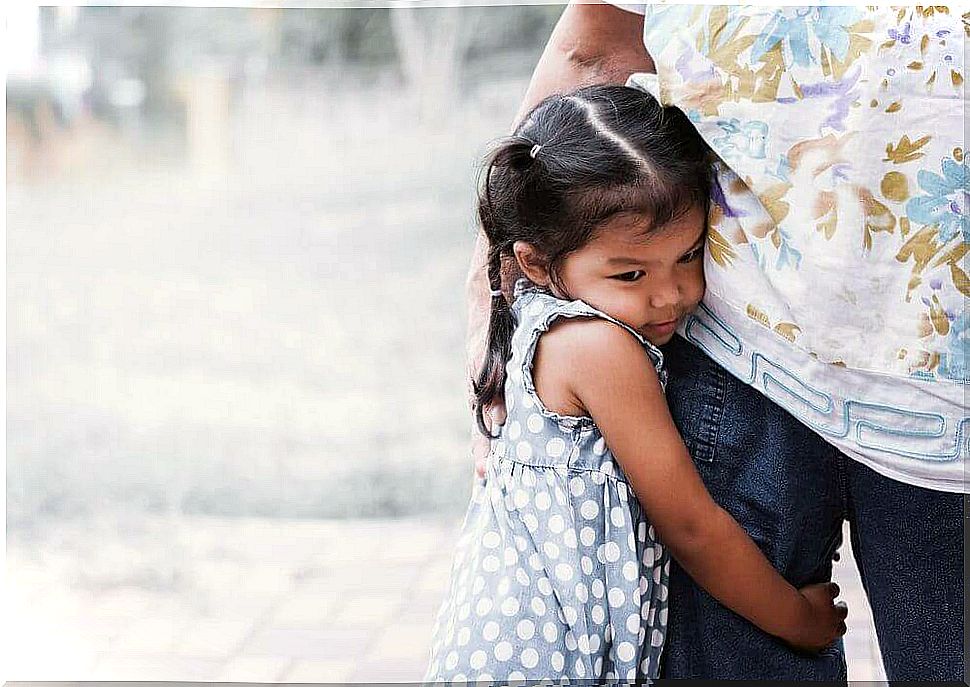First Day Of School: 7 Mistakes Parents Should Avoid

When babies stop being “our babies” and become babies ready for the first day of school, there are many mistakes we can make as parents.
After spending 3, 4 or 5 years looking after our children, it is natural that we find it hard to leave them for the first time in the hands of strangers, as new teachers do. The nerves are on the surface and emotions overwhelm us.
Separation is a difficult event for both children and parents. However, we adults have to help the children.
The problem is that sometimes we get carried away by feelings and make mistakes that can make starting school life more difficult.
In this article we talk about the 7 most common mistakes parents should avoid on the fateful first day of school.
First day of school: the 7 mistakes parents make

Having made the effort to find the best school for our child, we need to have confidence and help him adapt to this new phase as soon as possible.
How long it will take for you to enjoy school will depend on each child.
On the first day of school it is easy for parents to fall into any of these 7 mistakes. Acting late could make the transition from home to school more difficult.
Pay close attention, as these are easily avoidable situations.
1. Don’t prepare the children
Not involving the child in the preparation at the beginning of the lessons can be the biggest mistake of all. Children need to know in advance what they will encounter. You have to communicate with them to prepare them.
A great method is to have him participate in the preparations. The purchase of books, notebooks, and all the accessories can be a stimulating experience for him.
Knowing that they will be using that material shortly is already a good thing.
For many children, only parents’ explanations about school are enough to start this new stage with ease.
So, if we want to avoid school-related phobias, let’s prepare our children as much as possible to better face the new beginning.
2. Cry in front of the children
Admittedly, it is difficult to see our children cry, upset or afraid of the news and strangers, refusing to stay in that place.
Obviously we feel like crying too! But remember: you are the greatest example of learning how to manage emotions.
Losing control is one of the worst mistakes you can make in this case. The child is already nervous about the new experience and if we add to this the anguish of seeing the parents in tears, it is a real reminder to undermine any attempt to adapt to school.
If you have to cry, do it when you are already out of school. This first separation is a strong emotion that will last for several days, but little by little it will fade and the baby will calm down.
3. Go back if you hear them cry
If you have greeted the little one, have moved away and hear him crying or screaming, don’t go back. It is one of the worst mistakes to make in this adaptation phase.
The school staff are perfectly capable of calming your child. Most children tend to calm down within minutes of their parents leaving.
They start interacting with the environment, obviously some more than others, but in the end they all do.
In extreme cases where the child is unable to calm down, the school is very likely to contact the parents to bring the child home before classes begin.
But this, as we said, is an exception. The teachers know very well how to handle this situation. Do yourself and your child a favor: don’t go back.
4. Go around school
Avoid going around school to see if the children are okay. It is a gross mistake. If the children see you around after calming down, they will surely want to go away with you.
He won’t like having to say hello to you again. This will only rekindle that anguish they felt a few minutes earlier and will obviously be counterproductive to the school adjustment process.
We know that you are curious to know how they are, but wait at least until the end of the lessons and ask them directly.
5. Leave without saying goodbye
The greeting is a crucial point on the first day of school and in the days to come of this phase. The children will look sad, ask not to leave and cry incessantly.
However, sneaking out is not the solution. On the contrary, it can fuel an extremely negative feeling of abandonment.
The best thing to do is say hello and walk away. A short greeting, with a kiss, telling him how much you love him, that later you will come to pick him up and wishing him a wonderful day at school.
A hug, a kiss and a hello. But never run away without saying goodbye !
6. To excessively lengthen the moment of greeting

Neither go away secretly nor extend the farewell too much. We repeat: the greeting, when you go away, must be short.
If you stay too long, you can give the false impression that you will stay there with him. Nor do you have to promise the child, already knowing it won’t happen
Furthermore, for the other children around, who have already calmed down, seeing you will remind them that their parents have left, worsening the already tense atmosphere in the classroom.
With a short greeting, you help both the teachers and your children.
7. Blaming your child for crying or making comparisons with other children
Blaming or comparing the behavior of other children will make your child feel even worse.
It is perfectly normal for him to cry on the first day of school. Some will adapt more easily than others, but humiliating them will definitely not make them easier to insert.
Furthermore, it is also common for some children to cope well on the first day and then perhaps find themselves in difficulty and cry on the fourth or fifth day, when it seemed that everything was resolved.
This also happens. Be patient and don’t despair and even if she cries a little, don’t go back.









